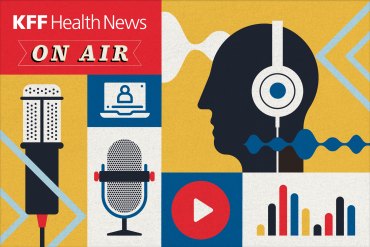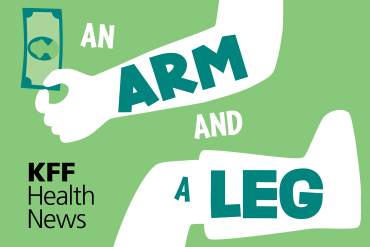Childhood Vaccination Rates, a Rare Health Bright Spot in Struggling States, Are Slipping
Mississippi, Tennessee, and West Virginia — states with some of the worst health outcomes — also have some of the highest childhood vaccination rates. But doctors and health officials worry a rising tide of vaccine skepticism is causing those public health bright spots to dim.
Beyond Hard Hats: Mental Struggles Become the Deadliest Construction Industry Danger
The physical hazards of construction work have long been a focus of safety professionals. Yet attention on the psychosocial hazards is relatively new, with suicide and substance use soaring among male construction workers. Mitigating those risks requires more than hard hats, safety vests, and protective goggles.
Syringe Exchange Fears Hobble Fight Against West Virginia HIV Outbreak
Health workers and researchers say an HIV outbreak in West Virginia that three years ago was called “the most concerning” in the U.S. continues to spread after state and local officials restricted syringe service programs.
In Year 7, ‘Bill of the Month’ Gives Patients a Voice
In the seventh year of KFF Health News’ “Bill of the Month” series, patients shared their most perplexing, vexing, and downright expensive medical bills, and reporters analyzed $800,000 in charges — including more than $370,000 owed by 12 patients and their families.
Trash Incinerators Disproportionately Harm Black and Hispanic People
Across the country, trash incinerators disproportionately overburden majority-Black and -Hispanic communities. Though the number of incinerators has declined nationwide since the 1980s, Florida offers financial incentives to waste management companies that expand existing facilities or build new ones.
‘Waiting List to Nowhere’: Homelessness Surveys Trap Black Men on the Streets
Homelessness experts and community leaders say vulnerability questionnaires have worsened racial disparities among the unhoused by systematically placing white people in front of the line ahead of Black people. Now places like Los Angeles, Las Vegas, and Austin, Texas, are developing alternative surveys to reduce bias.
Journalists Wrap Up 2024 With Topics From Trump 2.0 to Frustration With Health Industry
KFF Health News staff made the rounds on national and local media in the last two weeks to discuss topical stories. Here’s a collection of their appearances.
How America Lost Control of the Bird Flu, Setting the Stage for Another Pandemic
Exclusive reporting reveals how the United States lost track of a virus that could cause the next pandemic. Problems like the sluggish pace of federal action, deference to industry, and neglect for the safety of low-wage workers put the country at risk of another health emergency.
Obamacare Sign-Ups Lag After Trump Election, Legal Challenges
The number of new and returning enrollees using healthcare.gov — the federal marketplace that serves 31 states — is well below last year’s as of early December. Also, a Biden administration push to give “Dreamers” access to Obamacare coverage and subsidies is facing court challenges.
Democratic Senators Ask Watchdog Agency To Investigate Georgia’s Medicaid Work Rule
A group of Democratic senators asked the Government Accountability Office to examine a Georgia program that requires some Medicaid enrollees to work, study, or volunteer 80 hours a month for coverage. They cited KFF Health News’ reporting, which has documented the program’s high costs and low enrollment.
How Are States Spending Opioid Settlement Cash? We Built a Database of Answers
From addiction treatment to toy robot ambulances, we uncovered how billions in opioid settlement funds were used by state and local governments in 2022 and 2023. Find out where the money went.
Helicopters Rescued Patients in ‘Apocalyptic’ Flood. Other Hospitals Are at Risk, Too.
The helicopter evacuation of 70 people from a Tennessee hospital during Hurricane Helene is considered a success story. The building was destroyed by floodwaters, but no one died. In hindsight, why was it built next to a river?
Federal Judge Halts Dreamers’ Brand-New Access to ACA Enrollment in 19 States
A federal judge sided with 19 states seeking an injunction against a Biden administration rule allowing recipients of Deferred Action for Childhood Arrivals to enroll in Affordable Care Act coverage and qualify for subsidies amid the annual open enrollment period.
Florida’s Canada Drug Importation Plan Has Yet to Launch
Florida Gov. Ron DeSantis (R) spent years complaining that the Biden administration was slow-walking federal approval of his plan to import lower-cost prescription drugs from Canada — a concept endorsed by Donald Trump in 2020 just before his first presidential term ended. But nearly a year since the Food and Drug Administration green-lit the state’s […]
Resources Are Expanding for Older Adults on Their Own
Aging alone, without a spouse, a partner, or children, requires careful planning. New programs for this growing population offer much-needed help.
Journalists Dig Into Vaccine Debate and America’s Obesity Rates
KFF Health News staff made the rounds on national and local media in recent weeks to discuss topical stories. Here’s a collection of their appearances.
Georgia Said It Would Fix Care for the Disabled Years Ago. It’s Still Not Done.
In recent decades, the Justice Department has sued several states for unnecessarily confining people with disabilities in places such as state psychiatric hospitals, nursing homes and segregated workspaces. Such treatment violates a key part of the Americans With Disabilities Act — as affirmed in the 1999 Olmstead decision from the Supreme Court: that people with […]
Six Years Into an Appalachia Hospital Monopoly, Patients Are Fearful and Furious
Ballad Health, with the largest state-sanctioned hospital monopoly in the nation, has failed for years to meet many quality-of-care goals, leaving some patients afraid of their local hospitals but with no other nearby options.
Georgia’s Work Requirement Slows Processing of Applications for Medicaid, Food Stamps
Georgia’s ability to process applications for Medicaid and other public benefits has lagged since the launch of Republican Gov. Brian Kemp’s “Pathways” Medicaid work requirement, leaving Georgia with persistently slow Medicaid application processing times.
An Arm and a Leg: New Lessons in the Fight for Charity Care
Host Dan Weissmann checks back in on the fight for hospital charity care, with lessons from Dollar For and a savvy listener.

























